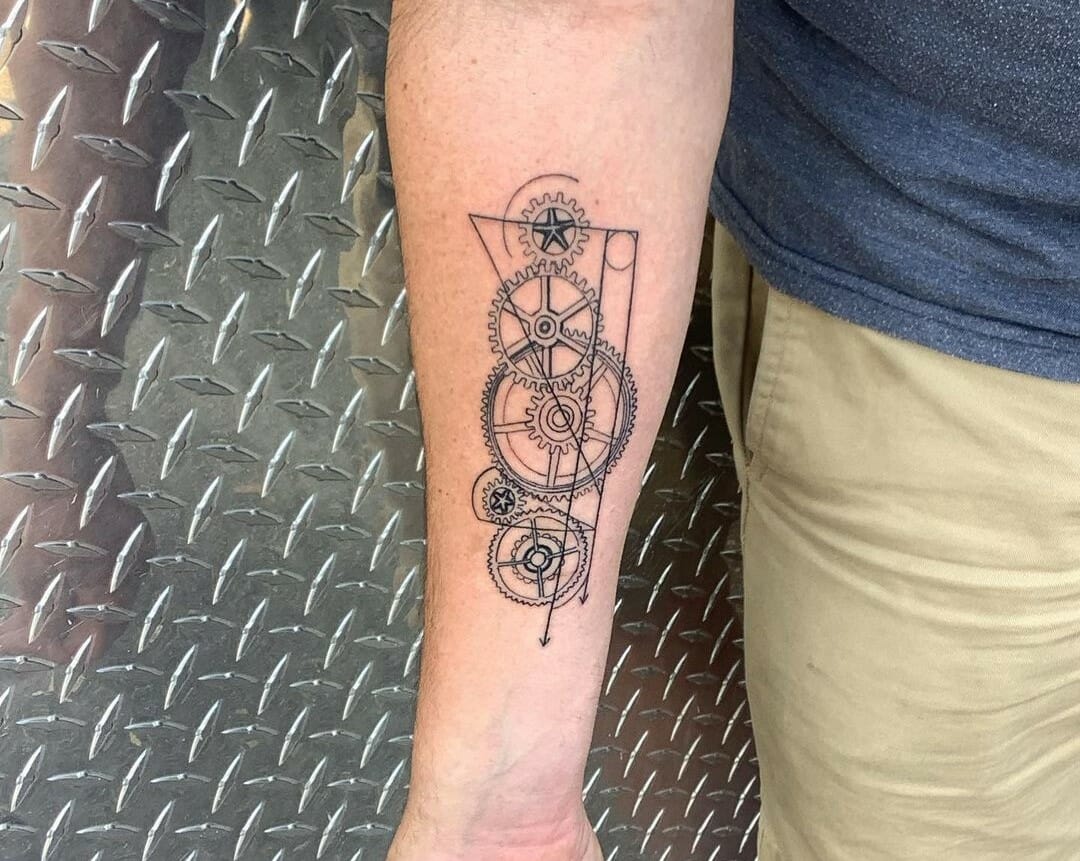Launch Your Tattoo Design Business with Confidence

Starting a tattoo design business requires not just artistic talent but also a strategic approach to business management. Whether you're an experienced tattoo artist looking to set your own course or a beginner eager to dive into this vibrant industry, understanding the nuances of running a tattoo business can make all the difference. This post will guide you through the essential steps and strategies to launch and grow your tattoo design business with confidence.
Understanding the Tattoo Industry Landscape


The tattoo industry has evolved significantly over the years. Once considered an art form for fringe groups, tattoos have become mainstream, celebrated by people from all walks of life. Here are some key insights into today's tattoo industry:
- Market Expansion: The tattoo industry has seen substantial growth with rising demand for personalized designs, leading to an increased number of tattoo parlors.
- Diversity in Designs: From traditional to neo-traditional, watercolor, abstract, and even hyper-realistic styles, the diversity in tattoo designs reflects the changing tastes of a new generation.
- Artistry and Skill: More than ever, customers value the technical proficiency and creativity of tattoo artists, pushing the profession towards professionalization.
- Health and Safety: With a growing emphasis on health, regulations around tattoo hygiene and practices have tightened, ensuring artist and client safety.
Steps to Start Your Tattoo Design Business

1. Skill Development and Apprenticeship

Your journey as a tattoo artist begins with skill. Here's what you need to do:
- Practice: Develop your drawing and design skills. Understand the fundamentals of art like shading, line work, and composition.
- Apprenticeship: Find a mentor or a studio willing to take you on as an apprentice. Learning from established artists is invaluable for technique, style, and business ethics.
- Art School or Workshops: Consider enrolling in art schools or attending workshops to hone your skills and learn about new techniques in tattooing.
2. Legal Requirements and Licensing

The tattoo industry, like any other, comes with its regulatory framework:
- Licenses and Permits: Depending on your location, you'll need a tattoo artist license, business license, health permits, and possibly zoning permits if you plan to have a studio.
- Health and Safety Compliance: Ensure you're familiar with local health regulations concerning tattooing practices to keep your business in good standing.
- Insurance: Invest in liability and business insurance to protect yourself, your studio, and your clients.
3. Business Planning and Branding

Starting a tattoo design business requires a robust business plan:
- Market Research: Understand your target market. Who are your potential clients? What styles are in demand? How much are they willing to spend?
- Business Plan: Write down your business vision, mission, operational strategies, marketing plans, and financial projections.
- Branding: Create a unique brand identity. Your business name, logo, and style should reflect the artistic individuality of your work.
- Location: Choose a strategic location that aligns with your target demographic. Consider both visibility and accessibility.
4. Setting Up Your Tattoo Studio

Here's how to set up a studio that not only complies with regulations but also fosters creativity:
- Equipment: Invest in high-quality tattoo machines, inks, needles, gloves, aftercare products, and other tools. Quality equipment ensures better work and client satisfaction.
- Workstations: Design workstations that are ergonomic, clean, and conducive to both the artist's comfort and client relaxation.
- Sterilization: Implement a rigorous sterilization process to maintain hygiene standards. This is crucial for your business's reputation and legal compliance.
💡 Note: Consider leasing or buying used equipment to keep initial costs down, but never compromise on the quality of your sterilization tools or procedures.
5. Marketing and Customer Acquisition

Marketing in the tattoo industry can be as creative as the tattoos themselves:
- Online Presence: Create a professional website showcasing your portfolio, studio, and booking system. Utilize social media platforms to share your work and engage with the community.
- Networking: Attend tattoo conventions, workshops, and art events to meet potential clients, collaborate with other artists, and stay updated with trends.
- Word of Mouth: Encourage satisfied clients to refer friends and family through loyalty programs or referral discounts.
- SEO and Local Advertising: Optimize your online presence for local SEO, invest in Google Ads, and consider traditional advertising like flyers or billboards in strategic locations.
6. Managing Your Business

Running a tattoo business isn't just about the art; it's also about management:
- Finance: Keep meticulous records of your income, expenses, taxes, and plan for retirement. Consider using accounting software tailored for small businesses.
- Appointment System: Implement a booking system that's easy to use, ensuring you manage your time and resources efficiently.
- Client Relations: Develop a system for client consultations, ensuring you understand their vision, provide aftercare instructions, and maintain contact for future sessions or touch-ups.
Final Thoughts

In conclusion, launching a tattoo design business requires a blend of artistic talent, business acumen, and dedication. From understanding the industry dynamics to ensuring you meet legal requirements, setting up your studio, marketing effectively, and managing your operations, each step is vital. Remember, your business is not just about the tattoos you ink but the experiences you create for your clients. Stay true to your artistic vision, embrace innovation, and always prioritize client satisfaction. This journey might be challenging, but with passion and the right strategies, you'll build a thriving tattoo business that leaves a lasting impression, much like your tattoos.
How long does it take to become a tattoo artist?

+
Becoming a tattoo artist can take several years. It often starts with developing your drawing skills, which might take 1-3 years, followed by an apprenticeship that can last from 1 to 3 years, depending on the studio and your progress.
Do I need special insurance for a tattoo business?

+
Yes, you need liability insurance to cover any potential accidents or injuries that can occur during tattooing. Additionally, consider business property insurance to protect your equipment and studio.
What is the best way to market a new tattoo studio?

+
Utilize a mix of online marketing (SEO, social media, Google Ads) and offline strategies (local events, flyers, word of mouth). Showcasing your portfolio online and creating a professional website can significantly boost your visibility.
How do I handle negative feedback or complaints from clients?

+
Listen to the client’s concerns, apologize for their experience, and offer a solution or compensation if appropriate. Always maintain professionalism and learn from feedback to improve your service.
What are the ongoing costs of running a tattoo business?
+Ongoing costs include rent for your studio, equipment maintenance, ink and supply replenishment, staff salaries (if applicable), marketing expenses, taxes, and insurance renewals.



